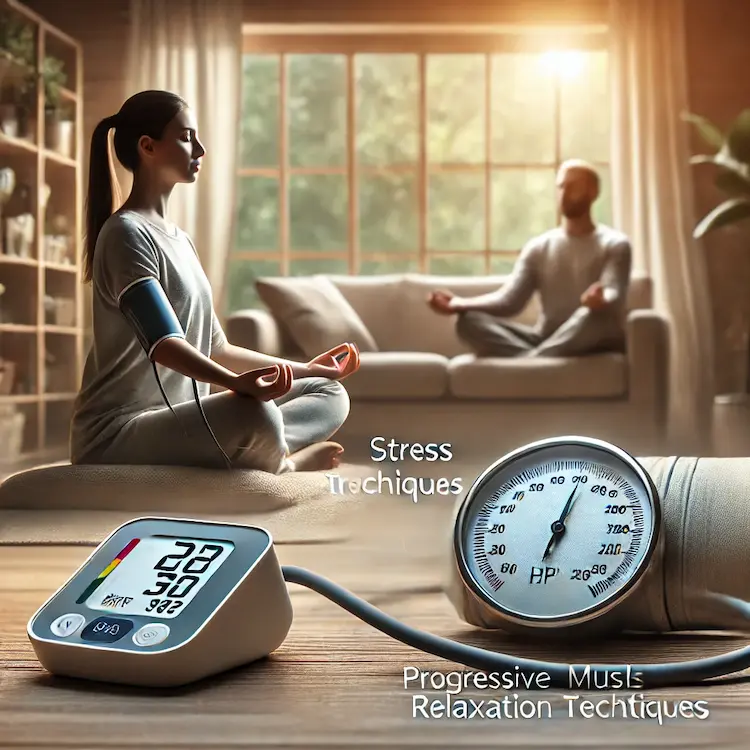Blood pressure is a vital indicator of overall health, but it is highly sensitive to mental and emotional states. Anxiety, stress, and other mental health conditions can cause significant fluctuations in blood pressure readings, making accurate assessment and management more challenging. This article explores how psychological factors influence blood pressure, the potential health risks, and the best strategies to mitigate these effects.
The Link Between Anxiety, Stress, and Blood Pressure
Understanding Blood Pressure and Its Regulation
Blood pressure (BP) is the force exerted by circulating blood on the walls of the arteries. It is regulated by the autonomic nervous system, which controls involuntary body functions like heart rate and blood vessel dilation.
- Systolic Pressure: The top number, representing the force of blood against artery walls when the heart beats.
- Diastolic Pressure: The bottom number, indicating pressure when the heart rests between beats.
Several factors influence BP, including physical activity, diet, genetics, and emotional states.
How Anxiety and Stress Affect Blood Pressure
Mental health conditions such as anxiety and chronic stress can lead to short-term and long-term changes in BP:
Temporary Spikes (Acute Stress Response)
-
- When faced with stress, the body releases cortisol and adrenaline, hormones that increase heart rate and constrict blood vessels.
- This leads to a temporary rise in BP, often referred to as “white coat hypertension,” which occurs during medical visits due to anxiety.
Long-Term Effects (Chronic Stress and Hypertension)
-
- Prolonged stress may contribute to persistent high blood pressure by keeping the body in a state of heightened alertness.
- Chronic activation of the stress response can damage arteries, leading to hypertension (high BP) over time.
Psychological Conditions That Influence BP Readings
Several mental health conditions can impact blood pressure regulation:
- Generalized Anxiety Disorder (GAD): Frequent and excessive worry can lead to consistent BP spikes.
- Panic Disorder: Sudden, intense episodes of fear can trigger sharp increases in BP.
- Depression: Although often associated with low BP, depression can contribute to irregular BP fluctuations.
Health and Societal Impacts of Stress-Induced Blood Pressure Changes
Health Risks of Fluctuating Blood Pressure
When BP is frequently altered due to mental health factors, it increases the risk of:
- Hypertension: Long-term BP elevation leads to heart disease, stroke, and kidney damage.
- Cardiovascular Strain: Increased workload on the heart may result in heart failure over time.
- Cognitive Decline: Studies show a link between high BP and a greater risk of dementia.
Societal Impact and Workplace Stress
Work-related stress is a major contributor to high BP. Long hours, high-pressure environments, and poor work-life balance can significantly elevate stress levels. Employers can play a role by:
- Encouraging stress management programs.
- Providing mental health support.
- Promoting healthy work environments.
Comparing Different Methods for Measuring and Managing BP Under Stress
| Method | Description | Effectiveness for Stress-Related BP |
|---|---|---|
| Manual Sphygmomanometer (Mercury & Aneroid) | Traditional method used by healthcare professionals | Accurate but influenced by white coat syndrome |
| Oscillometric Digital BP Monitors | Automatic, home-use devices | Convenient but may record higher readings during anxiety episodes |
| Ambulatory Blood Pressure Monitoring (ABPM) | Worn for 24 hours to track BP variations | More accurate for stress-related BP changes |
| Wearable BP Monitors | Smart devices that measure BP throughout the day | Good for tracking long-term stress effects |
ABPM is considered the gold standard for diagnosing stress-related BP conditions since it records fluctuations throughout daily activities.
Practical Strategies for Managing Stress-Related BP Fluctuations
Mindfulness and Relaxation Techniques
- Deep Breathing Exercises: Activates the parasympathetic nervous system, lowering BP.
- Meditation and Yoga: Studies show a 5-10 mmHg reduction in BP among practitioners.
- Progressive Muscle Relaxation (PMR): Helps release tension in the body, reducing BP spikes.
Lifestyle Modifications
- Regular Exercise: Reduces stress hormones and improves cardiovascular health.
- Healthy Diet: Foods rich in potassium (bananas, spinach) and magnesium (nuts, seeds) help stabilize BP.
- Adequate Sleep: Poor sleep increases cortisol, leading to higher BP.
Cognitive Behavioral Therapy (CBT) for Anxiety-Related BP
CBT helps individuals identify and change negative thought patterns that contribute to anxiety and stress. Research suggests that CBT can lower BP by 4-6 mmHg on average.
Medication for BP and Anxiety
For individuals experiencing severe BP fluctuations due to anxiety, doctors may prescribe:
- Beta-blockers (e.g., Propranolol): Reduce adrenaline effects on BP.
- Anti-anxiety Medications (e.g., SSRIs, Benzodiazepines): Help manage chronic anxiety that affects BP.

Conclusion
Stress and anxiety significantly impact blood pressure readings, both in the short term and long term. While temporary BP spikes due to anxiety are common, chronic stress can contribute to hypertension and cardiovascular complications. Understanding these effects and adopting stress management techniques, healthy lifestyle changes, and appropriate medical interventions can help regulate BP effectively.
Key Takeaways
- Stress and anxiety cause BP fluctuations through hormonal changes.
- White coat hypertension is common in anxious individuals during medical visits.
- Long-term stress may lead to hypertension and other cardiovascular risks.
- Ambulatory BP monitoring (ABPM) is the most accurate method for detecting stress-related BP changes.
- Mindfulness, exercise, and therapy are effective ways to manage stress-induced BP variations.
Actionable Recommendations
- Monitor BP regularly to track fluctuations and identify stress-related patterns.
- Adopt relaxation techniques like deep breathing and meditation to stabilize BP.
- Seek professional help if anxiety significantly impacts BP readings.
- Consider lifestyle adjustments such as healthy eating, exercise, and adequate sleep.
- Use ABPM or wearable devices for a more accurate picture of stress-related BP changes.


